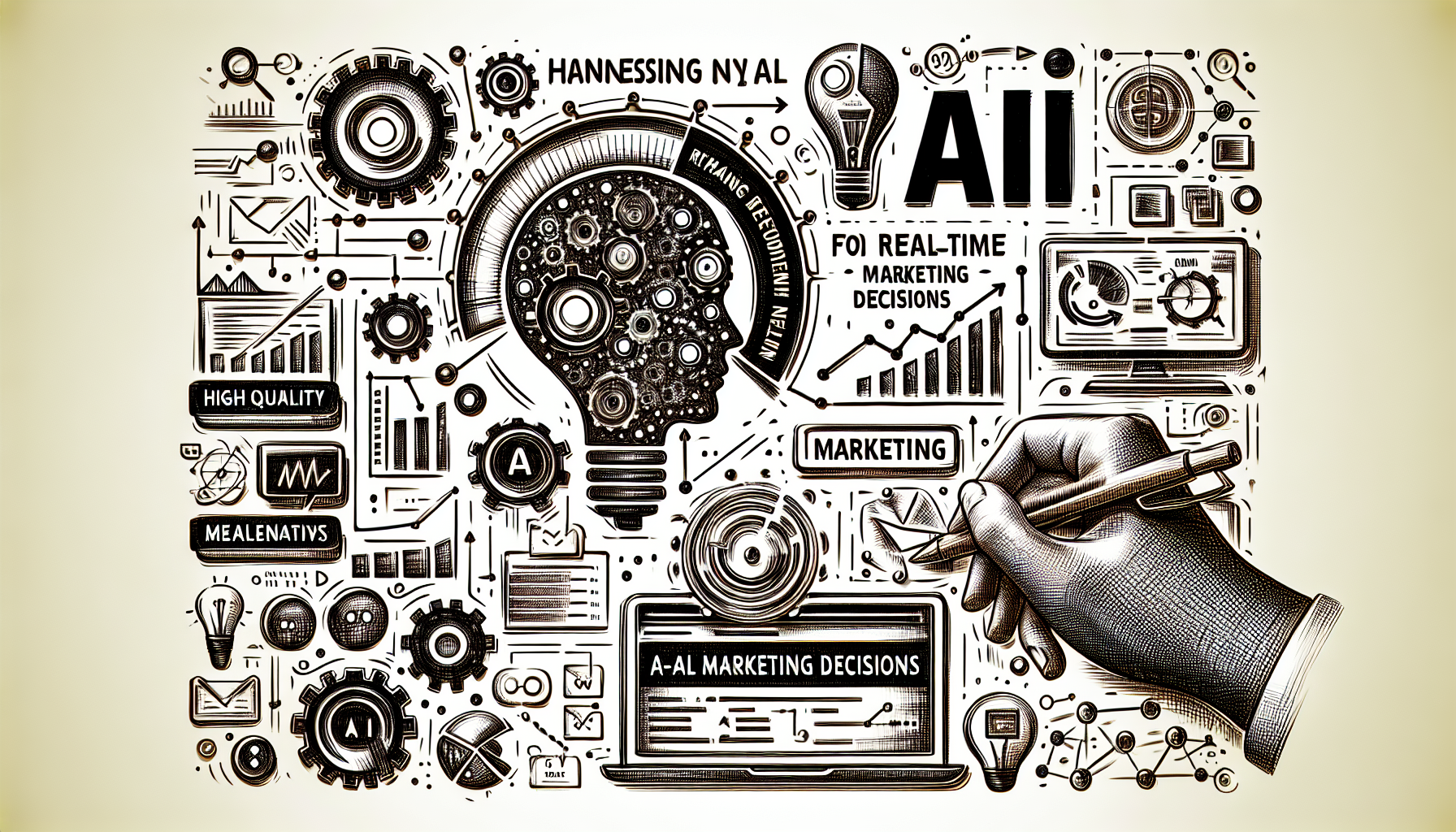Master AI for Real-Time Marketing Decisions

Discover how to harness AI for real-time marketing decisions in 2025. Learn about predictive analytics, personalized customer interactions, and real-time data integration to drive your marketing strategies.
Table of Contents
- Introduction
- Prerequisites/Requirements
- Step-by-Step Instructions
- Common Pitfalls to Avoid
- Advanced Tips
- Conclusion with Next Steps
Introduction
In this comprehensive guide, you will learn how to effectively leverage Artificial Intelligence (AI) for making real-time marketing decisions in the year 2025. As we delve into the era of ultra-fast computing and sophisticated AI models, the landscape of marketing has transformed significantly. This tutorial will provide you with actionable insights and step-by-step procedures to harness AI technologies, enhancing your marketing strategies and improving customer engagement in real-time. By the end of this tutorial, you will be equipped with the knowledge to implement AI-driven marketing techniques that are efficient, data-driven, and highly responsive to market dynamics.
Prerequisites/Requirements
To successfully implement AI in your real-time marketing strategies by 2025, you will need the following:
- Basic Knowledge of AI and Machine Learning: Understanding of fundamental AI concepts and machine learning operations.
- Data Infrastructure: Access to your organization's data infrastructure capable of handling large datasets with real-time processing capabilities.
- AI Tools and Software: Familiarity with AI platforms and tools that are prevalent in 2025, like TensorFlow, PyTorch, or newer platforms that might have emerged.
- Skilled Personnel: A team that includes data scientists, AI specialists, and marketing professionals who are adept at interpreting data and executing AI-driven campaigns.
Step-by-Step Instructions
Step 1: Establish Your AI Foundation
Before leveraging AI for real-time marketing decisions, ensure your AI foundation is solid.
- Set Up a Robust Data Infrastructure: Ensure your data ecosystem supports high-speed data ingestion, processing, and analysis. Invest in scalable cloud services and real-time data processing tools like Apache Kafka or Apache Spark.
- Develop or Acquire AI Models: Build AI models tailored to marketing analytics or adopt pre-trained models that can be fine-tuned on your data.
Step 2: Data Integration and Management
Seamless data integration is crucial for real-time AI-driven marketing.
- Integrate Multiple Data Sources: Combine data from various sources such as social media, CRM, and customer feedback to create a comprehensive view of your customer base.
- Ensure Data Quality: Implement processes to continuously clean and validate data to ensure accuracy and reliability for AI processing.
Step 3: Implement AI for Real-Time Analysis
Use AI to analyze data in real time and extract actionable insights.
- Deploy Real-Time Analytic Models: Utilize AI models that can analyze data as it is ingested, such as real-time recommendation systems or sentiment analysis models.
- Personalize Customer Interactions: Use AI to tailor marketing messages based on individual customer behaviors and preferences detected in real-time.
Step 4: Real-Time Decision Making
Translate insights into immediate marketing actions to capitalize on opportunities as they arise.
- Automate Decision Processes: Use AI-driven systems to make real-time decisions, such as personalized promotions and dynamic pricing adjustments.
- Monitor Performance: Continuously track the outcomes of AI-driven decisions to optimize strategies and improve ROI.
Common Pitfalls to Avoid
- Over-reliance on Automation: While AI can significantly enhance decision-making, it is crucial to maintain human oversight to interpret nuanced situations that AI may not fully understand.
- Data Privacy Issues: Ensure compliance with all relevant data protection regulations (like GDPR) to avoid legal repercussions and maintain customer trust.
- Ignoring Model Drift: AI models can degrade over time. Regularly update models with new data and retrain them to maintain accuracy.
Advanced Tips
- Experiment with Emerging AI Technologies: Stay ahead by experimenting with emerging technologies such as quantum computing for AI, which can potentially revolutionize real-time data processing and analysis.
- Use AI for Predictive Analytics: Beyond real-time decision making, use AI to predict future trends and customer behaviors, allowing for more proactive marketing strategies.
Conclusion with Next Steps
By following this guide, you should now be able to effectively deploy AI in your marketing strategies to make real-time decisions that are informed, timely, and impactful. The next steps involve continuously monitoring the performance of your AI systems, staying updated with the latest AI advancements, and always striving for improvements in both technology and strategy. Real-time AI-driven marketing is not just about automation but also about enhancing human decision-making with powerful, data-driven insights.
Remember, the journey of integrating AI into your marketing efforts is continuous and ever-evolving. Keep learning, experimenting, and adapting to stay competitive in this dynamic landscape.
Frequently Asked Questions
What is real-time marketing and how does AI enhance its capabilities?
Real-time marketing involves strategies that allow businesses to market to customers at the moment of engagement or interest. AI enhances these capabilities by analyzing large volumes of data in real time to predict customer behavior, personalize content, and make automated decisions that align with the marketing strategy. This leads to more targeted and effective marketing actions.
What types of AI models are most effective for real-time marketing decisions?
For real-time marketing decisions, predictive analytics models, machine learning algorithms, and neural networks are highly effective. These models can process and analyze data quickly to forecast customer behaviors and preferences, allowing marketers to tailor their approaches instantly and accurately.
How can companies ensure data privacy while using AI in real-time marketing?
Companies can ensure data privacy by adhering to data protection regulations such as GDPR and CCPA, implementing robust data security measures, and using anonymization techniques to protect customer identities. Transparency with customers about how their data is being used and obtaining consent prior to data collection are also crucial steps in maintaining privacy.
What challenges might businesses face when integrating AI into their real-time marketing strategies?
Challenges may include high costs of implementation, the complexity of integrating AI with existing systems, the need for skilled personnel to manage AI operations, and potential biases in AI models that could lead to inaccurate targeting. Overcoming these challenges requires careful planning, ongoing training, and continuous evaluation of AI systems.
